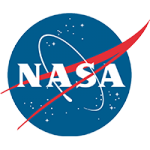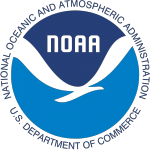


Biogeochemical Data Submission Guidance
This is meant to provide guidance to OCB scientists about where to submit their OCB-relevant data sets. For detailed information, PIs should also refer to the published data policies of their agency sponsor(s). Given the nascent state of database interoperability, funding agencies have an understandable interest in being the digital-original holders of data collected with their funds. That being the case, investigators must submit their data to the data center indicated by their program manager and/or their award letter. Internet links and/or references to their data by other data centers are encouraged.

Biological and Chemical Oceanography Data Management Office (BCO-DMO)
Data emerging from OCB-relevant research projects funded by the NSF Biological and Chemical Oceanography Sections, as well as the NSF Division of Polar Programs Arctic Sciences and Antarctic Organisms & Ecosystems Program will be managed by the Biological and Chemical Oceanography Data Management Office (BCO-DMO). The main objective of the BCO-DMO is to support the scientific community through improved accessibility to ocean science data. With utmost attention to data quality and metadata completeness, the BCO-DMO works with investigators to ensure that marine biogeochemical and ecological data and information developed in the course of scientific research can easily be disseminated, protected, and stored on short to intermediate time frames. Once final, all NSF-funded ocean data sets are submitted to the appropriate national data center for permanent archiving (e.g., NOAA National Centers for Environmental Information, NCEI). For a more comprehensive summary of NSF Division of Ocean Sciences (OCE) data submission guidelines, please refer to the NSF OCE Sample and Data Policy.
NASA SeaBASS 
SeaBASS is a permanent repository for bio-optical oceanography data maintained by the NASA Ocean Biology Processing Group (OBPG). Biogeochemical field data that are supported by funding from NASA’s Ocean Biology and Biogeochemistry program are to be submitted to SeaBASS. The SeaBASS data manager works with investigators to ensure data quality and metadata completeness.
NASA Ocean Biology DAAC (OB.DAAC)
NASA's The Ocean Biology Distributed Active Archive Center (OB.DAAC) is managed by NASA's Ocean Biology Processing Group (OBPG). OB.DAAC is responsible for archiving satellite ocean biology data produced or collected under NASA’s Earth Observing System Data and Information System (EOSDIS). OB.DAAC's holdings include a mixture of historical and current missions, as well as data from both NASA and partner space organizations.
NOAA NCEI (formerly the National Oceanographic Data Center) 
NOAA's National Centers for Environmental Information (NCEI) hosts and provides public access to one of the largest, most comprehensive archives for environmental data on Earth, including oceanic, atmospheric, and geophysical data.
- Data Access
- NCEI Ocean Carbon Data System (OCADS) (formerly Carbon Dioxide Information Analysis Center (CDIAC-Oceans)) - Contact: Alex Kozyr

CLIVAR and Carbon Hydrographic Data Office (CCHDO)
CCHDO manages high quality global CTD and hydrographic data and provides these data in WHP-Exchange, WOCE and netCDF formats for easy use.



